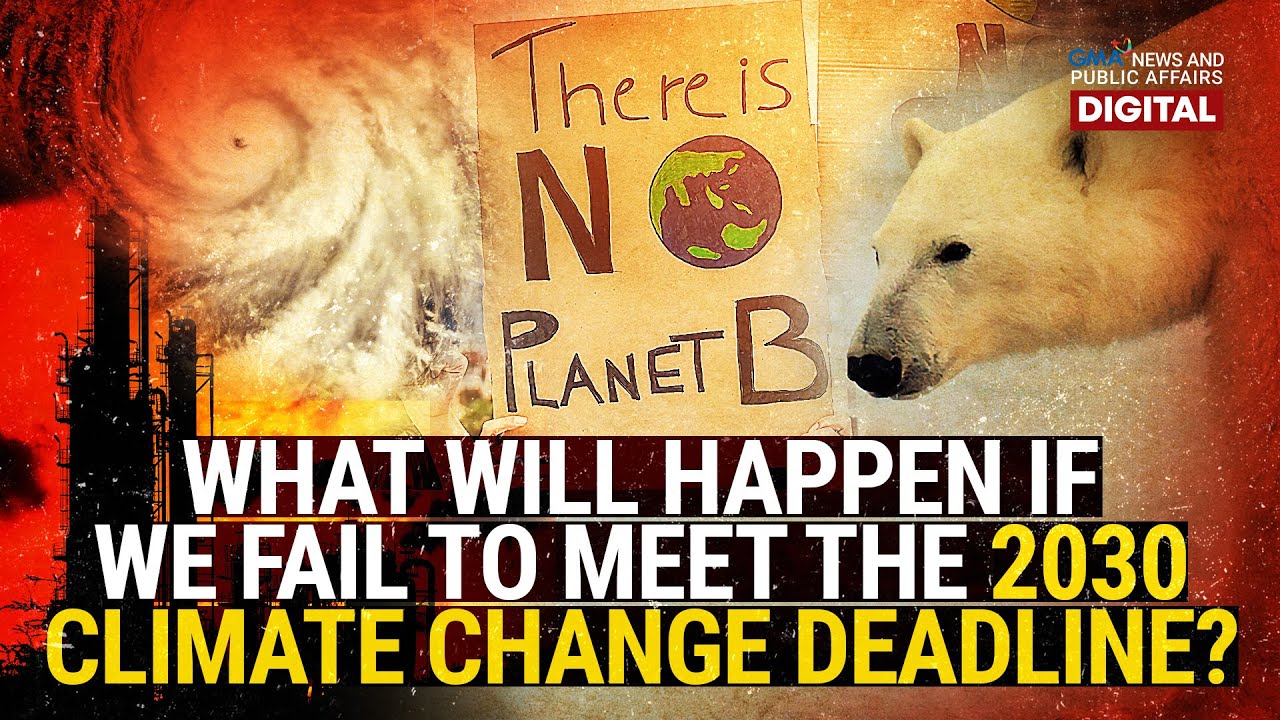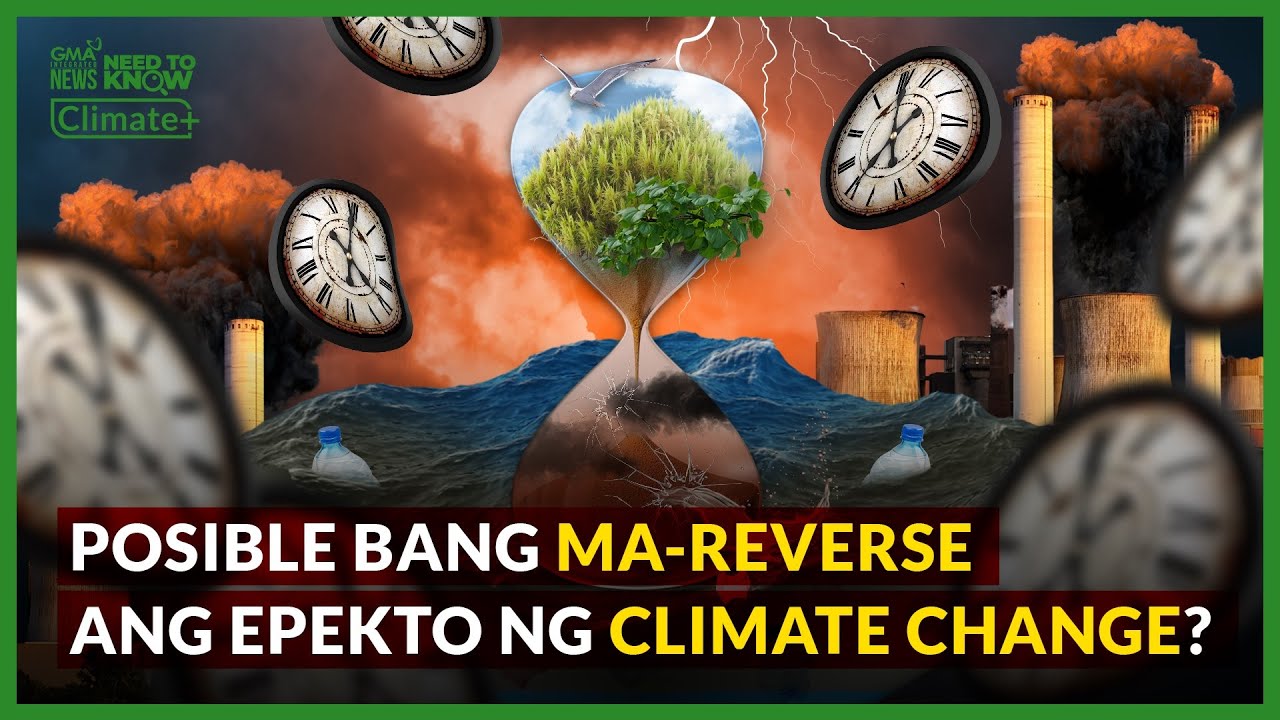Addressing the impact of climate change l New Day
Summary
TLDRIn celebration of Earth Month, Greenpeace Philippines' country director Leah Guerrero discusses the urgent need to combat climate change by transitioning to renewable energy. She highlights the Philippines' transport and energy sectors as major carbon emitters and emphasizes the link between human health and environmental well-being. Guerrero encourages individual actions like reducing plastic use and active transport, while stressing the importance of collective action to push for systemic change through government policies and corporate practices.
Takeaways
- 🌏 Earth month in April highlights environmental protection efforts, with Greenpeace Philippines leading the charge.
- 🚫 The rampant use of fossil fuels is identified as the main driver of accelerated climate change.
- ⏳ There is a critical window until 2030 to decarbonize and prevent the worst impacts of climate change.
- 🇵🇭 In the Philippines, the transport and energy sectors are the largest contributors to carbon emissions.
- 🌿 The COVID-19 pandemic has raised awareness about the connection between human health and the health of the planet.
- 🚲 Active transport and creating greener spaces are examples of how communities are responding to environmental challenges.
- 🌱 Greenpeace encourages a collective shift towards renewable energy and decarbonization to build a 'better normal'.
- 🔄 Reducing plastic use and consumption are individual actions that contribute to environmental protection.
- 🤝 Greenpeace emphasizes the importance of collective action to influence government and corporate policies for systemic change.
- 📢 The interview concludes with a call to action for individuals to join movements demanding environmental accountability from authorities and businesses.
Q & A
What is the main goal of Greenpeace Philippines?
-The main goal of Greenpeace Philippines is to pave the way for a greener and more peaceful world by addressing the factors that threaten the environment.
What is identified as the primary cause of accelerated climate change according to Leah Guerrero?
-The primary cause of accelerated climate change, as identified by Leah Guerrero, is the rampant use of fossil fuels.
What is the critical timeframe mentioned for decarbonization to avert the worst impacts of climate change?
-The critical timeframe mentioned is the next nine years, before the window of 2030 is closed, to ensure global temperatures are kept below 1.5 degrees Celsius.
Which sectors in the Philippines contribute the most to carbon emissions?
-In the Philippines, the transport and energy sectors are the biggest contributors to carbon emissions due to their high use of fossil fuels and greenhouse gas emissions.
How has the COVID-19 pandemic affected people's attitudes towards environmental health?
-The COVID-19 pandemic has made people more careful and mindful about their health and the environment, leading to increased awareness about the relationship between people's well-being and the planet's health.
What positive environmental changes were observed during the early stages of the pandemic?
-During the early stages of the pandemic, lockdowns globally led to cleaner air due to reduced transportation and fossil fuel usage, such as diesel for cars.
What are some of the actions people took to improve their environment during the pandemic?
-People took actions like creating bike lanes and greener spaces, reimagining a better world where they could live alongside nature while taking care of it and still enjoying economic benefits.
What role does Greenpeace believe each individual can play in building a better normal?
-Greenpeace believes that each individual can help build a better normal by reducing reliance on fossil fuels through active transport and other means, as well as engaging in collective action to influence government and corporate policies.
Apart from active transport, what are some other individual actions suggested by Greenpeace to reduce environmental impact?
-Some other individual actions suggested by Greenpeace include reducing plastic use, which also comes from fossil fuels, and reducing overall consumption.
Why does Greenpeace emphasize the importance of collective action alongside individual actions?
-Greenpeace emphasizes collective action because individual actions alone are not sufficient; systemic solutions driven by government regulations, policies, and corporate practices are needed to create a significant energy transition and combat climate change.
What is the message from Greenpeace Philippines' director, Leah Guerrero, regarding the urgency of environmental action?
-Leah Guerrero emphasizes the urgency of environmental action, stating that if everyone speaks loudly enough, people in power will be forced to listen and take action towards decarbonization and environmental protection.
Outlines

This section is available to paid users only. Please upgrade to access this part.
Upgrade NowMindmap

This section is available to paid users only. Please upgrade to access this part.
Upgrade NowKeywords

This section is available to paid users only. Please upgrade to access this part.
Upgrade NowHighlights

This section is available to paid users only. Please upgrade to access this part.
Upgrade NowTranscripts

This section is available to paid users only. Please upgrade to access this part.
Upgrade NowBrowse More Related Video

Cities Rise to the Challenge – Sustainable Mobility

What will happen if we fail to meet the 2030 climate change deadline? | Need to Know

🌍Five things we can do to combat climate change l Al Jazeera English

Posible bang ma-reverse ang epekto ng climate change? | Need to Know

¿Podríamos ser 100% renovables?♻️

ridle pra smtr
5.0 / 5 (0 votes)